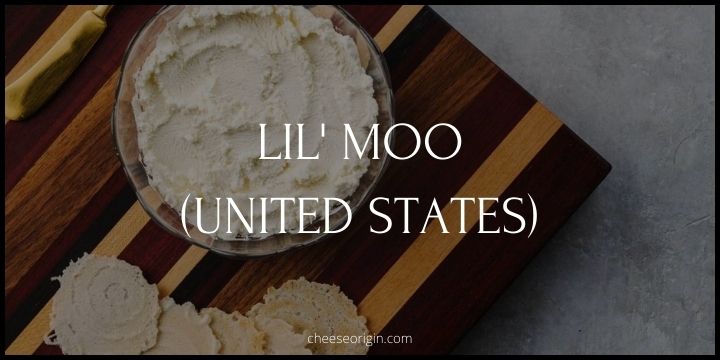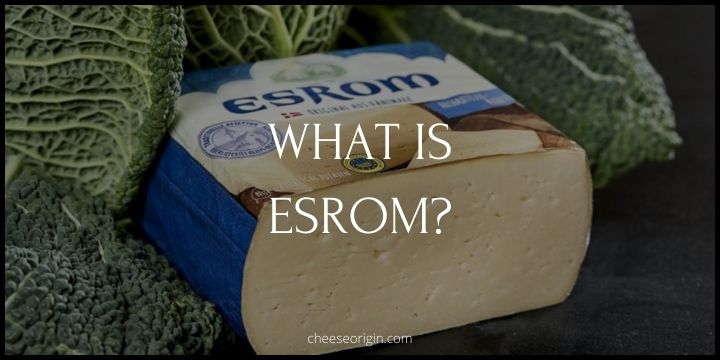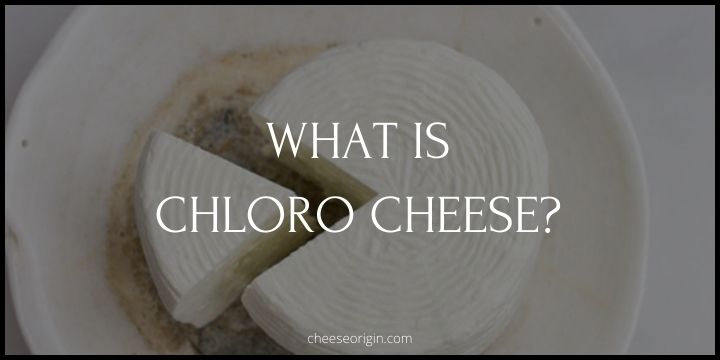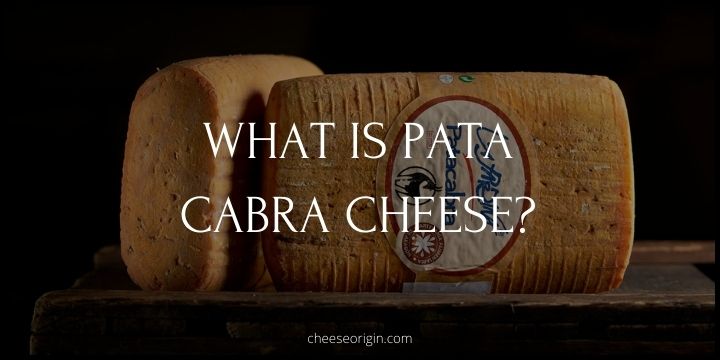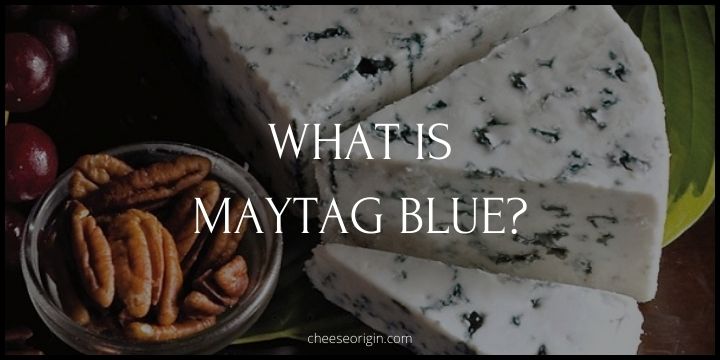What is Roncal? A Taste of Spanish Heritage

Welcome to a journey into the heart of Spain’s rich culinary landscape, where we will explore one of its cherished gastronomical gems – Roncal. This is not just any cheese; it’s a testament to time-honored traditions, a reflection of lush landscapes, and a symbol of Spanish heritage.
Made in the serene valleys of Navarra, Roncal is a cheese that tells a story — a story of shepherds, sheep, and centuries-old cheese-making practices. In this blog post, we delve into what makes Roncal so special, from its unique production process to the bold, robust flavors that have made it a beloved staple in Spanish cuisine.
Quick Facts About Roncal
| Quick Facts | Details |
|---|---|
| Origin | Roncal Valley, Navarre, Spain |
| Cheese Type | Hard, artisanal |
| Milk Source | Sheep (Latxa or Rasa) |
| Aging Time | Minimum 4 months |
| Flavor | Robust, slightly piquant |
| Texture | Firm, slightly crumbly |
| Color | Natural white to pale yellow |
| Rind | Hard, natural, grey-brown |
| PDO Status | Yes, since 1981 |
| Pairings | Red wines, dark breads, fruits, and nuts |
| Production Season | December to July |
| Unique Feature | First cheese in Spain to receive PDO status |
| Serving Suggestion | Serve at room temperature to fully appreciate its flavor |
| Storage | Keep in the lower part of the refrigerator, wrapped in wax paper |
| Shelf Life | Up to several months if properly stored |
What is Roncal?
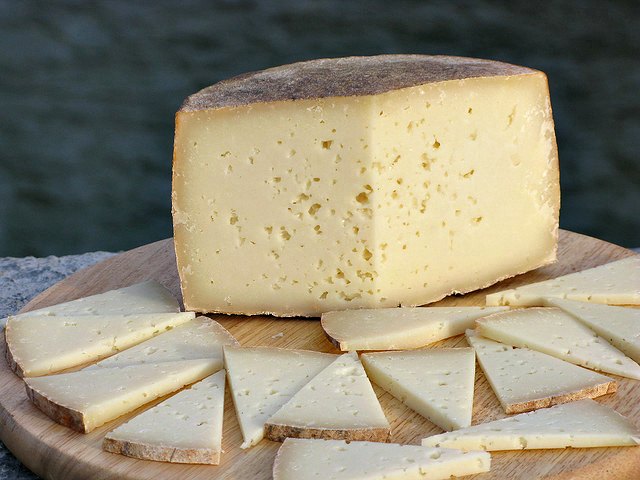
Roncal, a name that resonates with the echoes of the Spanish countryside, is a gem hidden in the heart of the Pyrenees. It’s not just a geographical location; it’s a tapestry of culture, tradition, and exquisite gastronomy. The village, nestled amid stunning landscapes, is steeped in history that dates back centuries, and its cobblestone streets seem to whisper tales of the past.
But perhaps Roncal is most famously known for its cheese. Roncal cheese is a cherished treasure, a culinary delight that has garnered recognition far beyond the Spanish borders. Made from raw sheep’s milk, this hard cheese carries the rich flavors of the mountainous terrain where the sheep graze. Each wheel of cheese, carefully crafted by local artisans, is a testament to the region’s commitment to preserving traditional methods.
Yet, Roncal is more than its cheese. It’s a place where nature and humanity exist in harmony. The rugged mountains, the roaring rivers, the lush meadows – they all paint a picture of serene beauty that captivates visitors. The locals, warm and welcoming, are proud custodians of their heritage and are always eager to share their stories and traditions.
In essence, Roncal is a symphony of experiences. It’s a place where the old-world charm meets modern sensibilities, where every corner holds a story, and every bite of its famed cheese is a celebration of its rich cultural heritage.
What Does Roncal Taste Like?
The taste of Roncal cheese is a delightful journey for the palate, offering an array of complex flavors that reflect its rich heritage. At first bite, you’ll notice a robust, sharp taste that’s characteristic of sheep’s milk cheese. This initial flavor is often described as nutty or slightly sweet, and it has a distinct undertone of olives.
As the cheese melts in your mouth, it unveils deeper, earthy notes. These flavors are a testament to the natural diet of the sheep that provide the milk – the lush grasses, herbs, and flowers of the Pyrenean meadows. The texture of Roncal adds to the tasting experience too. It’s firm yet creamy, with a slight graininess that’s typical of aged cheeses.
The finish of Roncal is where its true character shines. It leaves a lingering, full-bodied aftertaste that’s slightly piquant.
Roncal Tasting Notes
- Initial Flavor: Robust, sharp taste characteristic of sheep’s milk cheese. Nutty or slightly sweet with a distinct undertone of olives.
- Texture: Firm yet creamy, with a slight graininess typical of aged cheeses.
- Deeper Notes: Unveils earthy flavors reflecting the natural diet of the sheep – lush grasses, herbs, and flowers of the Pyrenean meadows.
- Finish: Leaves a lingering, full-bodied aftertaste that’s slightly piquant. Some tasters may detect a hint of caramel.
- Overall Experience: Roncal cheese offers a complex and deep flavor profile, making it not just a cheese, but an experience to savor.
How is Roncal cheese made?
- Milking: The process begins with milking the Latxa and Aragonesa breeds of sheep that graze in the Pyrenean meadows. The milk used is raw and untreated to preserve its natural flavors.
- Curding: The sheep’s milk is then warmed and mixed with rennet, a substance that helps the milk coagulate and form curds.
- Cutting and Cooking the Curd: Once the curd forms, it’s cut into small pieces and heated. This step helps separate the solid curds from the liquid whey.
- Molding: The curds are put into molds where they are pressed to remove any remaining whey and to give the cheese its distinctive shape.
- Salting: The molded cheese is then salted. This helps enhance the flavor and acts as a natural preservative.
- Aging: The cheese wheels are aged for a minimum of four months, often longer. During this time, they develop their unique, robust flavor and firm texture.
- Quality Check: Each wheel of cheese is inspected and hand-turned regularly to ensure even aging. Only those that meet the high standards of the Roncal Cheese Denomination of Origin are labeled as Roncal.
- Packaging and Distribution: Finally, the approved cheeses are packaged and distributed, ready to be enjoyed by cheese lovers around the world.
10 Best Roncal Substitutes
| Substitute | Origin | Description |
|---|---|---|
| Manchego | Spain | A Spanish sheep’s milk cheese with a rich, nutty flavor and crumbly texture. |
| Pecorino Romano | Italy | An Italian cheese made from sheep’s milk that’s salty and hard, perfect for grating. |
| Roquefort | France | A blue cheese made from sheep’s milk, it’s tangy, crumbly, and slightly moist. |
| Idiazabal | Basque Country, Spain | A smoked, nutty sheep cheese with a slightly tangy finish. |
| Feta | Greece | A brined curd cheese made from sheep’s milk or a mixture of sheep and goat’s milk. It is crumbly and has a tangy, salty flavor. |
| Ossau-Iraty | France | A French cheese made from sheep’s milk, it has a creamy, buttery flavor with a nutty note. |
| Zamorano | Spain | A sheep’s milk cheese with a firm texture and a rich, buttery flavor. |
| Gouda | Netherlands | Although traditionally made from cow’s milk, aged Gouda can replicate the firm texture and nutty flavor of Roncal. |
| Cheddar | England | An aged cheddar can mimic the sharpness and firm texture of Roncal. |
| Parmigiano Reggiano | Italy | A hard, granular cheese known for its umami-rich, nutty flavor. |
What Pairs Well With Roncal?
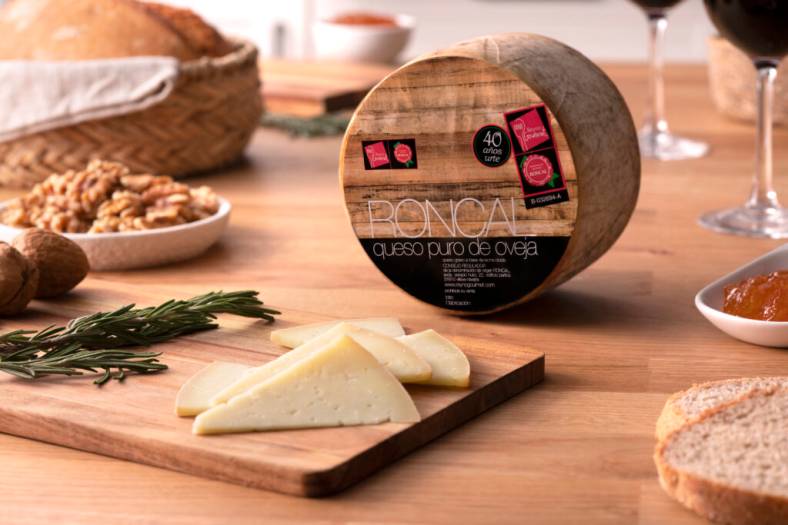
Food that goes well with Roncal:
| Category | Food |
|---|---|
| Fruits/Nuts | Apples, Pears, Walnuts, Almonds |
| Breads/Crackers | Baguette, Rye Bread, Water Crackers |
| Meats/Proteins | Chorizo, Serrano Ham, Roast Lamb, Grilled Chicken |
| Vegetables | Roasted Red Peppers, Marinated Artichokes, Olives |
| Condiments/Spreads | Fig Jam, Honey, Quince Paste |
| Desserts | Dark Chocolate, Almond Cookies, Flan |
Also read: What Fruit Goes on a Charcuterie Board?
Beverage that goes well with Roncal:
| Category | Beverage |
|---|---|
| Wines | Rioja, Cabernet Sauvignon, Tempranillo, Chardonnay |
| Beers | Belgian Dubbel, Stout, Brown Ale |
| Spirits | Brandy, Whiskey, Sherry |
| Non-Alcoholic | Sparkling Water, Apple Cider, Grape Juice |
Also read: Best Wine and Cheese Pairings: The Ultimate Guide
Also read:
- What is Cheshire Cheese? A Timeless British Delight
- What is Fromage Blanc? Unveiling France’s Creamy White Delight
- What is Saint Andre? A Decadent Delight from Normandy
- What is Blue Castello? The Creamy Danish Delight
- What is Danish Blue (Danablu)? Denmark’s Favorite Blue Cheese
- What is American Grana? Redefining Parmesan in the US
- What is Tilsit Cheese? An Age-Old Culinary Secret
